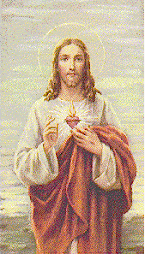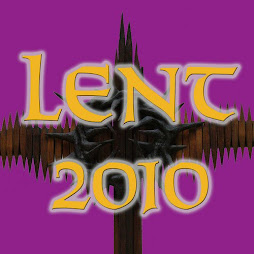
This is Excerpt 4
How Does the Church Help the Catholic Faithful to
Speak About Political and Social Questions?
Speak About Political and Social Questions?
A Well-Formed Conscience
17. The Church equips its members to address political and social questions by helping them to develop a well-formed conscience. Catholics have a serious and lifelong obligation to form their consciences in accord with human reason and the teaching of the Church. Conscience is not something that allows us to justify doing whatever we want, nor is it a mere “feeling” about what we should or should not do. Rather, conscience is the voice of God resounding in the human heart, revealing the truth to us and calling us to do what is good while shunning what is evil. Conscience always requires serious attempts to make sound moral judgments based on the truths of our faith. As stated in the Catechism of the Catholic Church, “Conscience is a judgment of reason whereby the human person recognizes the moral quality of a concrete act that he is going to perform, is in the process of performing, or has already completed. In all he says and does, man is obliged to follow faithfully what he knows to be just and right” (no. 1778).
18. The formation of conscience includes several elements. First, there is a desire to embrace goodness and truth. For Catholics this begins with a willingness and openness to seek the truth and what is right by studying Sacred Scripture and the teaching of the Church as contained in the Catechism of the Catholic Church. It is also important to examine the facts and background information about various choices. Finally, prayerful reflection is essential to discern the will of God. Catholics must also understand that if they fail to form their consciences they can make erroneous judgments.2
The Virtue of Prudence
19. The Church fosters well-formed consciences not only by teaching moral truth but also by encouraging its members to develop the virtue of prudence. Prudence enables us “to discern our true good in every circumstance and to choose the right means of achieving it” (Catechism of the Catholic Church, no. 1806). Prudence shapes and informs our ability to deliberate over available alternatives, to determine what is most fitting to a specific context, and to act decisively. Exercising this virtue often requires the courage to act in defense of moral principles when making decisions about how to build a society of justice and peace.
20. The Church’s teaching is clear that a good end does not justify an immoral means. As we all seek to advance the common good—by defending the inviolable sanctity of human life from the moment of conception until natural death, by defending marriage, by feeding the hungry and housing the homeless, by welcoming the immigrant and protecting the environment—it is important to recognize that not all possible courses of action are morally acceptable. We have a responsibility to discern carefully which public policies are morally sound. Catholics may choose
different ways to respond to compelling social problems, but we cannot differ on our moral obligation to help build a more just and peaceful world through morally acceptable means, so that the weak and vulnerable are protected and human rights and dignity are defended.
17. The Church equips its members to address political and social questions by helping them to develop a well-formed conscience. Catholics have a serious and lifelong obligation to form their consciences in accord with human reason and the teaching of the Church. Conscience is not something that allows us to justify doing whatever we want, nor is it a mere “feeling” about what we should or should not do. Rather, conscience is the voice of God resounding in the human heart, revealing the truth to us and calling us to do what is good while shunning what is evil. Conscience always requires serious attempts to make sound moral judgments based on the truths of our faith. As stated in the Catechism of the Catholic Church, “Conscience is a judgment of reason whereby the human person recognizes the moral quality of a concrete act that he is going to perform, is in the process of performing, or has already completed. In all he says and does, man is obliged to follow faithfully what he knows to be just and right” (no. 1778).
18. The formation of conscience includes several elements. First, there is a desire to embrace goodness and truth. For Catholics this begins with a willingness and openness to seek the truth and what is right by studying Sacred Scripture and the teaching of the Church as contained in the Catechism of the Catholic Church. It is also important to examine the facts and background information about various choices. Finally, prayerful reflection is essential to discern the will of God. Catholics must also understand that if they fail to form their consciences they can make erroneous judgments.2
The Virtue of Prudence
19. The Church fosters well-formed consciences not only by teaching moral truth but also by encouraging its members to develop the virtue of prudence. Prudence enables us “to discern our true good in every circumstance and to choose the right means of achieving it” (Catechism of the Catholic Church, no. 1806). Prudence shapes and informs our ability to deliberate over available alternatives, to determine what is most fitting to a specific context, and to act decisively. Exercising this virtue often requires the courage to act in defense of moral principles when making decisions about how to build a society of justice and peace.
20. The Church’s teaching is clear that a good end does not justify an immoral means. As we all seek to advance the common good—by defending the inviolable sanctity of human life from the moment of conception until natural death, by defending marriage, by feeding the hungry and housing the homeless, by welcoming the immigrant and protecting the environment—it is important to recognize that not all possible courses of action are morally acceptable. We have a responsibility to discern carefully which public policies are morally sound. Catholics may choose
different ways to respond to compelling social problems, but we cannot differ on our moral obligation to help build a more just and peaceful world through morally acceptable means, so that the weak and vulnerable are protected and human rights and dignity are defended.



























